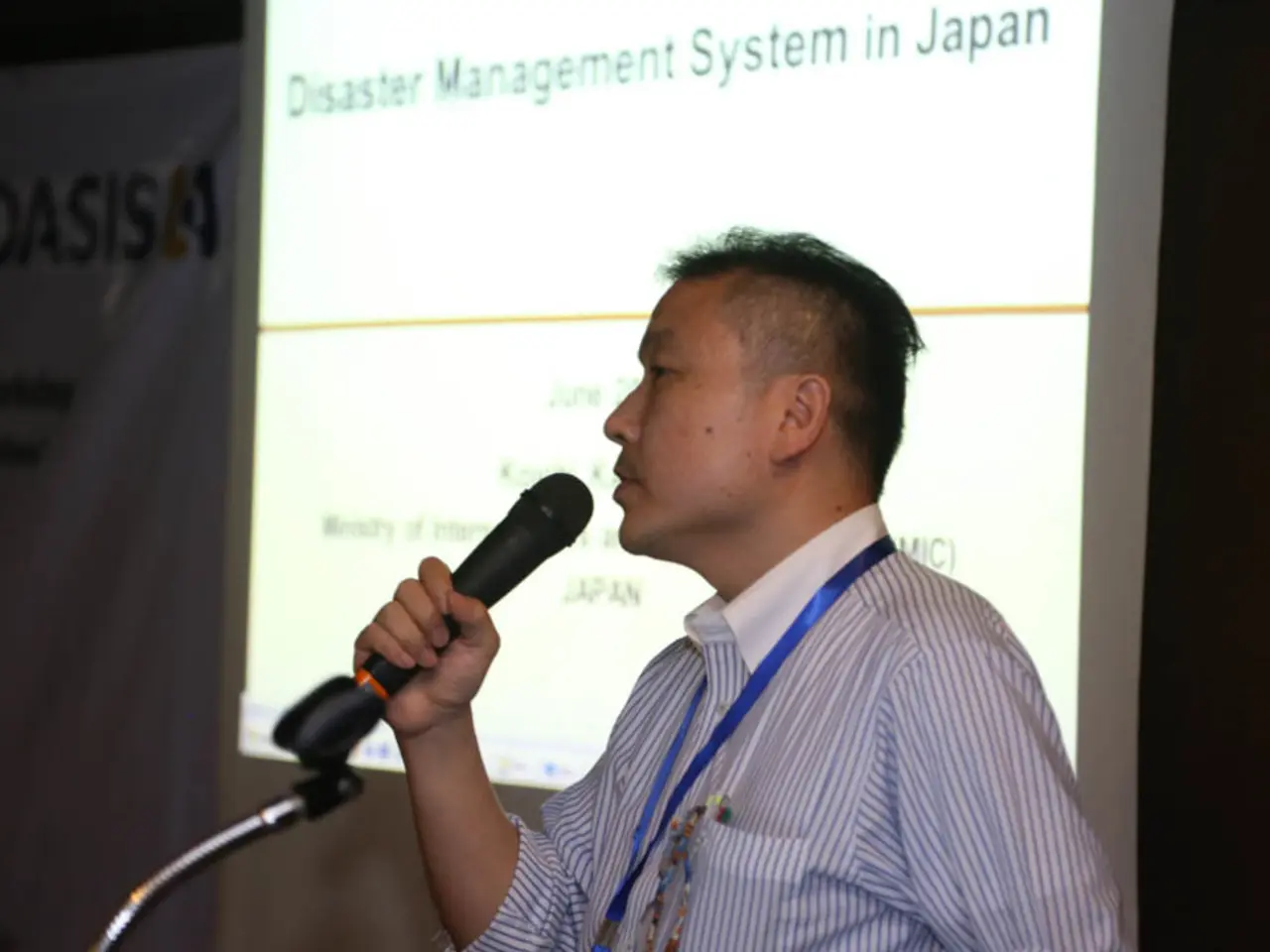Business Globalization: Origins, Benefits, and Obstacles
In the wake of World War I, globalization took a pause as nations turned to protectionism, imposing import taxes to shield their economies. However, this trend was bucked in the United States in the 20th century, marking a shift towards a more open and integrated global economy.
This shift was further reinforced by the widespread adoption of free market economic systems through fiscal policies and trade agreements. Governments worldwide, including the U.S., have been instrumental in reducing or removing trade barriers, allowing for the free movement of products, investment, technology, and jobs across borders and cultures.
One of the key milestones in this process was the establishment of the World Trade Organization (WTO) on January 1, 1995. The WTO succeeded the General Agreement on Tariffs and Trade (GATT), which had governed international trade since 1948. This transition marked a significant milestone in global economic governance, creating a formal international body with legal authority to enforce trade rules, serve as a dispute settlement forum, and facilitate further multilateral negotiations.
The WTO's creation and evolution have been instrumental in the institutionalization of the global trading system. It has reduced tariffs and other trade barriers between member countries, driving down trade costs substantially. For instance, the UK observed a 13.75% reduction in tariffs with trading partners between 2000 and 2016, attributed to WTO membership.
The WTO also provides a stable and predictable legal framework that businesses and governments rely on to resolve trade disputes and plan international trade activities. It acts as a forum for negotiations and dispute resolution, enabling cooperation and conflict management among major trade competitors and smaller economies alike.
However, the WTO faces modern challenges. The consensus-based decision-making process has made it difficult to adopt new rules amidst geopolitical changes and a larger membership, limiting major multilateral agreements in recent decades. To address these constraints, smaller plurilateral initiatives within the WTO system have become more prominent, allowing for more agile responses to contemporary trade issues.
Despite these challenges, the WTO's creation and evolution represent foundational steps in the institutionalization of the global trading system, facilitating increased international trade, economic integration, and dispute settlement, while currently grappling with adapting its rulemaking and governance functions to a more complex and diversified global economy.
In other aspects, globalization has had profound impacts. Culturally, it represents the exchange of ideas, values, and artistic expression among cultures. It has led to increased manufacturing in developing countries and massive migrations from rural to industrial or urban areas. Politically, globalization has shifted attention to intergovernmental organizations like the United Nations (UN) and the World Trade Organization (WTO).
Economically, globalization is facilitated by free trade agreements, which play a crucial role in fostering international commerce. Corporations benefit from globalization through cost reductions, access to larger consumer markets, and the removal of trade barriers such as tariffs. A simple example of this is a car manufactured in the U.S. with parts sourced from various countries.
However, globalization has also been criticized for creating a concentration of wealth and power in the hands of a small corporate elite. It has advanced social justice on an international scale but has also led to greater interaction among various populations, potentially exacerbating social and economic inequalities.
In conclusion, the WTO, as a key player in the global trading system, continues to navigate the complexities of a rapidly evolving global economy. Its role in reducing trade barriers, providing a stable legal framework, and facilitating negotiations and dispute resolution is undeniable. Yet, it faces challenges in adapting to a more complex and diversified global economy, particularly in securing consensus among its ever-expanding membership.
- The widespread adoption of free market economic systems, trade agreements, and the establishment of the World Trade Organization (WTO) have enabled the free movement of tokens, such as finance, technology, investment, among other goods and services, across borders and cultures.
- As a result of globalization and the WTO's creation, businesses can benefit from ico (initial coin offerings), as they have access to larger consumer markets and opportunities to raise capital from investors across the globe.
- Educational and self-development resources, such as online courses, are readily available through the internet, allowing for general news and specific knowledge to be easily shared among individuals and nations, thanks to a more open and integrated global economy facilitated by the WTO.
- The WTO's importance in dispute settlement is evident, as it provides a forum to resolve trade-related issues pertaining to various aspects, including general news, finance, technology, and education-and-self-development, fostering a more peaceful and prosperous global business environment.




